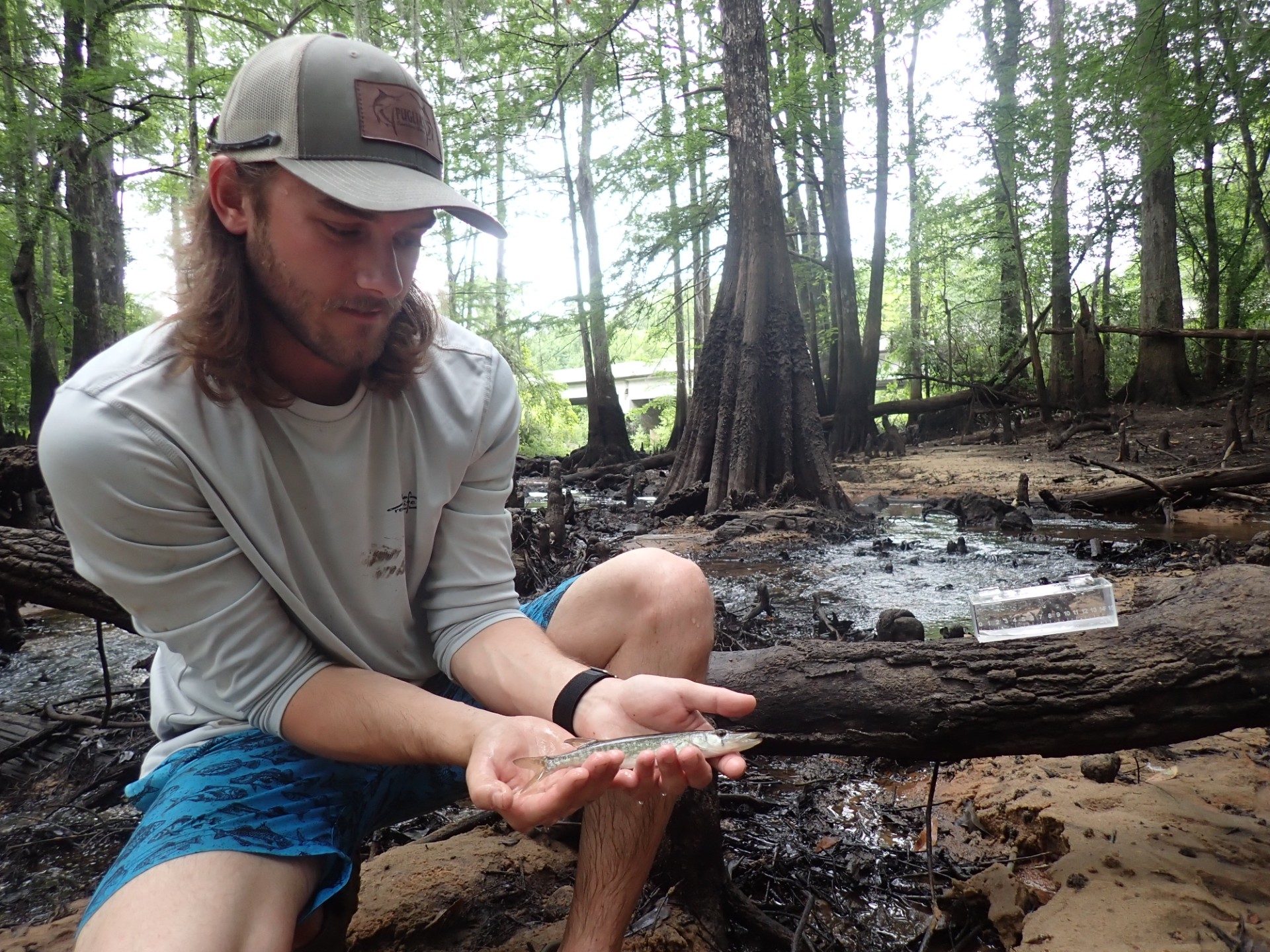Master's in Renewable Natural Resources
Overview
The School of Renewable Natural Resources offers a Graduate education to students who wish to discover the natural world and ways to improve the management of renewable resources, protect biodiversity, and promote conservation of diverse ecosystems. Two Graduate curricula (Masters and Ph.D.) are available that provide students with advanced education in five areas of concentration: Fisheries and Aquaculture, Forestry and Forest Resources, Forest Products, Watershed Science, or Wildlife.
The Pinkie Gordon Lane Graduate School website has all the current information and details for admission. View application fees and current deadlines for the LSU Graduate School. The nonrefundable fee must accompany the application; no applications will be processed without it. All applicants for admission to the School of Renewable Natural Resources (SRNR) must have a bachelor's degree from an accredited institution*, be acceptable to a majority (51%) of the graduate faculty in the applicant's degree program, and have an identified major professor. Successful applicants to the SRNR M.S. program generally have undergraduate GPAs of at least 3.25 and a minimum combined verbal/quantitative GRE score of 300.
M.S. in Renewable Natural Resources
Our Master of Science degree curriculum includes general requirements for all students, as well as specific course requirements for each of the five Areas of Concentration.
Areas of Concentration
- Fisheries and Aquaculture (FAQM)
- Forestry and Forest Resources (FRSM)
- Forest Products (FPDM)
- Watershed Science (WSCM)
- Wildlife (WLDM)
Graduate Minors
- Fisheries
- Forestry
- Wildlife
- Interdepartmental Studies in Wetland Ecology and Restoration
General Requirements: Each student accepted into the M.S. program in the School of Renewable Natural Resources, regardless of concentration, will have an initial qualifying exam during the first semester administered by at least three faculty members in the School. This exam will identify areas of knowledge that can be improved through coursework, and these courses will be detailed on the student’s program of study, which will be kept in the student’s file.
Each M.S. student will be required to take the following 9 hours of courses as part of their required 24-hour program of study:
| Course | Credit Hours |
Course Title |
| RNR 7001 | 3 | Research Methodology (taken the first available semester) |
| EXST 7004 or 7005 | 4 | Statistical Techniques |
| Graduate Seminar | 2 | 2 semesters required (1 hr. each) |
Additional courses in the program of study will be determined by the graduate committee according to the Area of Concentration, the needs of the student, and the research project. In addition to coursework, each M.S. student will complete a thesis on an appropriate research topic within a specific Area of Concentration. This will include preparation of a research proposal, to be approved by the graduate committee, and successful presentation and defense of the thesis at the end of the M.S. program
Specific Requirements: In addition to the general requirements for all M.S. students in Renewable Natural Resources, each of the Areas of Concentration will include 9 hours of coursework requirements specific to that field of research. Requirements for each of the graduate concentrations are outlined on the appropriate pages (linked above), which detail areas of demonstrated proficiency (or additional required coursework if the student needs more background information), as well as approved courses that could be included in a student’s program of study.
Resources for Current Students
All M.S. students in their initial semester should meet with their Advisory Committee and plan a program of study, identifying what courses the student will take and the semester to be taken. Completed forms should be provided to the student, all members of the Advisory Committee, and the Administrative Assistant in charge of Student Services in room 227 of the RNR Building. The form should list all courses that will be completed by the student, and any waivers of required courses should be initialed by the Committee Chair. Note that all M.S. students are required to take 30 hours of credit, 6 of which will be RNR 8000. At least 12 of the remaining 24 hours must be graded courses at the 7000-level or above, with no more than 6 hours of RNR 7900. Download a blank program of study form.
Current M.S. students can find information on graduation requirements, transferring credits and forms on the Graduate School website.
For More Information
Sabrina S. Taylor, Ph.D.
Graduate Coordinator
Weaver Brothers Distinguished Professor
School of Renewable Natural Resources
Louisiana State University Agricultural Center
Baton Rouge, LA 7080
staylor@lsu.edu

LSU College of AgricultureFORMSCareer ResourcesScholarships & AssistantshipsContact
Dr. Allen Rutherford
Director, School Renewable Natural Resources
druther@lsu.edu
225-578-4131
Dr. Sabrina Taylor
Coordinator of Graduate Studies and Research
staylor@lsu.edu
225-578-4131
Dr. Andy Nyman
Coordinator of Interdepartmental Studies in Wetland Ecology and Restoration
phone: 225-578-4220
jnyman@lsu.edu